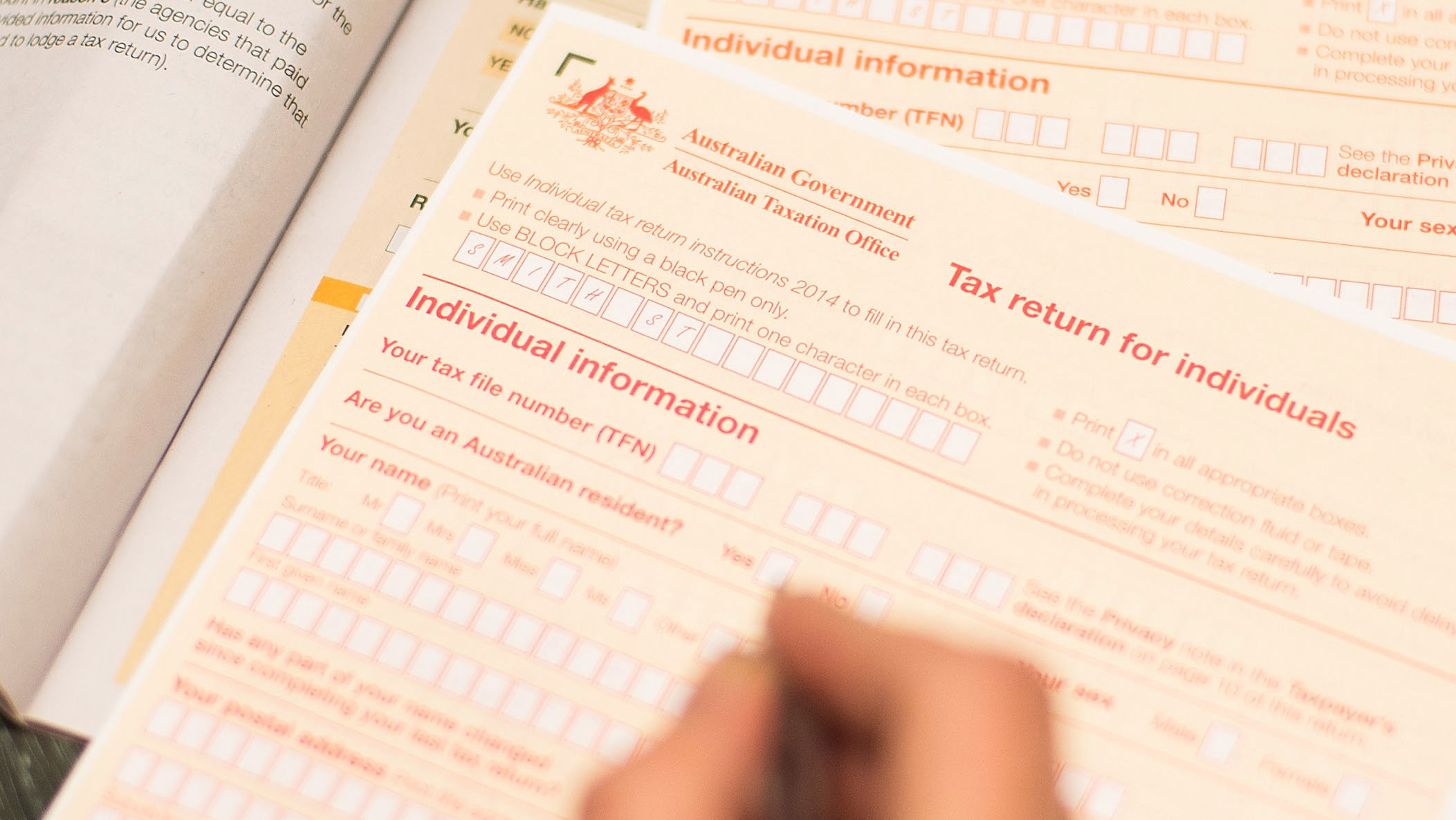Simplify Your Tax Filing with an Online Tax Return Australia Service
Making Uses Of an Income Tax Return: Unlocking Possible Savings and Guaranteeing a Larger Tax Obligation Reimbursement
The income tax return offers as an essential tool for people looking for to enhance their economic end results, providing various methods for potential cost savings and improved reimbursements. By leveraging reductions and credit reports, taxpayers can tactically reduce their taxable earnings and boost their overall monetary standing. The intricacies of tax guidelines and the ever-evolving landscape of tax obligation law require an extensive understanding of readily available alternatives. What are the vital approaches that can be employed to guarantee that taxpayers maximize these benefits? The response may disclose greater than simply monetary gains.
Comprehending Tax Obligation Deductions
Numerous taxpayers may discover themselves overwhelmed by the complexities of tax obligation reductions, yet comprehending these crucial parts is important for making best use of prospective financial savings. Tax deductions minimize gross income, thereby decreasing the general tax obligation for organizations and individuals. Acquainting oneself with the various sorts of deductions readily available can significantly improve one's capability to maximize income tax return.
Deductions can be classified right into itemized and typical reductions. The basic reduction provides a fixed reduction in gross income, while itemized deductions allow taxpayers to mention specific expenses, such as home loan rate of interest, state taxes, and charitable payments. Taxpayers should evaluate which choice produces the best advantage, as picking the suitable deduction method can cause considerable cost savings.
Taxpayers must likewise stay educated regarding adjustments in tax obligation regulations that may affect qualified deductions, as these can vary each year. By properly traversing the landscape of tax reductions, individuals can disclose the potential for an extra desirable tax outcome and safe and secure better monetary benefits.
Discovering Tax Credit Scores
Tax obligation credit reports represent an additional remarkable opportunity for taxpayers to reduce their total tax obligation, enhancing the advantages gained from reductions. Unlike reductions, which lower taxed earnings, tax credit histories offer a dollar-for-dollar decrease of the actual tax obligation owed. This distinction makes tax obligation credit scores particularly important for people looking for to maximize their financial savings.
There are 2 main sorts of tax obligation credit scores: refundable and nonrefundable. Nonrefundable credit scores can reduce your tax obligation responsibility to zero however not listed below that quantity, while refundable credit reports can result in a refund if the credit scores exceed the tax owed. Instances of commonly claimed tax credit reports include the Earned Revenue Tax Credit (EITC), the Child Tax Obligation Credit score, and education-related credit reports like the American Possibility Credit Rating.
Eligibility needs for these credit ratings can vary considerably, commonly based upon revenue, submitting standing, and particular situations. Taxpayers ought to completely examine the standards related to each credit score to determine they claim all advantages for which they certify. By tactically making use of readily available tax obligation credits, people can boost their tax obligation returns, eventually resulting in substantial financial savings and potentially larger refunds.

Investing Your Refund Carefully
Getting a Tax refund can feel like an economic windfall, but just how that money is made use of can profoundly affect long-lasting financial wellness. As opposed to viewing your reimbursement as disposable revenue, consider it an opportunity to spend in your future.


One effective alternative is adding to a Private Retired Life Account (IRA) This can enhance your retired life savings while potentially producing tax obligation benefits. Spending in a varied stock profile can supply substantial growth capacity over time, allowing your reimbursement to function for you in the market.
Furthermore, consider using your reimbursement to pay down high-interest debt, such as bank card balances. Minimizing financial obligation can boost your monetary standing and eliminate stress, inevitably allowing you to allot even more funds towards financial investments in the future.
For those concentrated on education, using your reimbursement for a 529 university financial savings strategy can aid protect a brighter future for on your own or your children.
Planning for Future Expenses
Thoroughly preparing for future expenses is important for Australian tax refund preserving monetary stability and achieving lasting objectives. A well-structured monetary plan allows individuals to allot resources successfully, making sure that upcoming expenses do not disrupt their financial well-being. Tax returns can provide a beneficial structure for this planning process.
Using the reimbursement as a springboard, people can determine and focus on substantial future costs, such as home repairs, education and learning expenses, or health care requirements. Establishing a spending plan that integrates these anticipated expenditures enables a proactive strategy, reducing the likelihood of monetary stress when the time pertains to address them.
In addition, setting aside funds from your tax obligation refund right into devoted interest-bearing accounts can enhance the effectiveness of your planning. Australian Tax return online. Take into consideration creating an emergency situation fund specifically for unexpected expenses, making certain that you are prepared for unpredicted situations without thwarting your economic objectives
Common Errors to Stay Clear Of
Numerous people make important mistakes when handling their tax obligation returns that can undermine their financial preparation initiatives. One common error is falling short to keep accurate records. Inadequate paperwork can bring about missed reductions, causing a reduced refund or greater tax obligation liability. It is vital to keep arranged documents of all earnings, costs, and tax-related papers throughout the year.
One more constant error is disregarding to evaluate tax obligation regulation modifications. Tax obligation policies can advance each year, and ignorance of these adjustments might lead to missed chances for tax obligation credit histories or deductions. Additionally, many taxpayers forget qualified reductions, such as those for academic expenses or clinical expenditures.
Declaring tax obligations as well very early or far too late can also be detrimental. Early filers might miss out on out on final tax breaks, while late filers take the chance of charges and passion.
In addition, not seeking professional help when required can bring about expensive mistakes. Tax professionals can supply important understandings, making certain conformity and making best use of prospective savings.
Finally, hurrying with the return can lead to straightforward arithmetic errors or overlooked forms. Taking the time to double-check all access is important for an effective income tax return end result.
Verdict
To summarize, the calculated use of tax returns serves as a vital mechanism for making best use of economic advantages. Understanding of typical pitfalls can additionally simplify the tax obligation process, ultimately encouraging taxpayers to utilize their returns for an extra safe and secure monetary future.
Tax credits stand for an additional noteworthy avenue for taxpayers to lower their total tax responsibility, enhancing the advantages gained from reductions. Unlike deductions, which lower taxable earnings, tax credit reports supply a dollar-for-dollar decrease of the actual tax obligation owed. Nonrefundable credit scores can decrease your tax responsibility to no yet not below that amount, while refundable credit scores can result in a refund if the credits exceed the tax obligation owed. Examples of commonly declared tax obligation debts consist of the Earned Income Tax Credit Report (EITC), the Child Tax Credit rating, and education-related credits like the American Chance Credit.
Tax laws can advance each year, and lack of knowledge of these changes may result in missed opportunities for tax debts or reductions. - Australian Tax return online